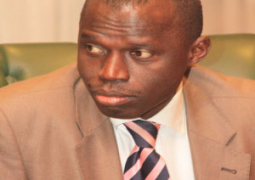The
role of integration as a catalyst for economic growth, development and
insulation from global shocks has made the concept of regional integration even
more attractive to states. It is an indisputable fact that creating a
borderless ECOWAS of people and accelerating socio-economic development in West
Africa and Africa at large can hardly be attained without regional integration
that requires collective action by all member states.
In
the 40 years of its existence, the Community has been confronted with a
plethora of political, social and economic issues. The early 1990s witnessed
civil wars in member states such as Sierra Leone, Liberia and Cote D’Ivoire.
Unconstitutional changes of government through coup d’état were almost a
constant feature in the region, leading to the perception of West Africa as a
region prone to undemocratic and unstable governments.
However,
today all the states have democratically elected governments. Unconstitutional
changes of government are no longer tolerated within ECOWAS. More recently,
Ebola, another seemingly insoluble problem facing the region, has been
contained. In spite of challenges from piracy, terrorism and poor
infrastructure to corruption and conflict due to managing natural resources,
the future looks bright for West Africa and ECOWAS: as the Community transits
from the ECOWAS of States to an ECOWAS of People.
The
Minister of Trade, Industry, Regional Integration and Employment Lamin Jobe at
a recent forum on national consultation for the evaluation of ECOWAS Vision
2020, made it clear that the region’s vision 2020 is aimed at setting clear
direction and goals to significantly raise the standards of living of the West
Africans through conscious and inclusive programme that would guarantee a
bright future for the community and its citizens.
Recently,
the 15-member states of the Economic Community of West African States (ECOWAS)
announced their intention of creating one single currency to be named the Eco.
All that remains is a few house cleaning matters such as creating the
exchange-rate regime as well as the monetary policy framework.
With
this development, it appears that the region has taken the next leap of faith
in their journey towards integration, though it will be curious to know what
role France will play in the new currency seeing that it controls the CFA, the
common currency used in its former colonies.
“
The integration of the simpler and the deeper reading processes is not
automatic and requires years of learning by the novice reader, as well as extra
milliseconds for any expert to read a more sophisticated text.”
Maryanne
Wolf



